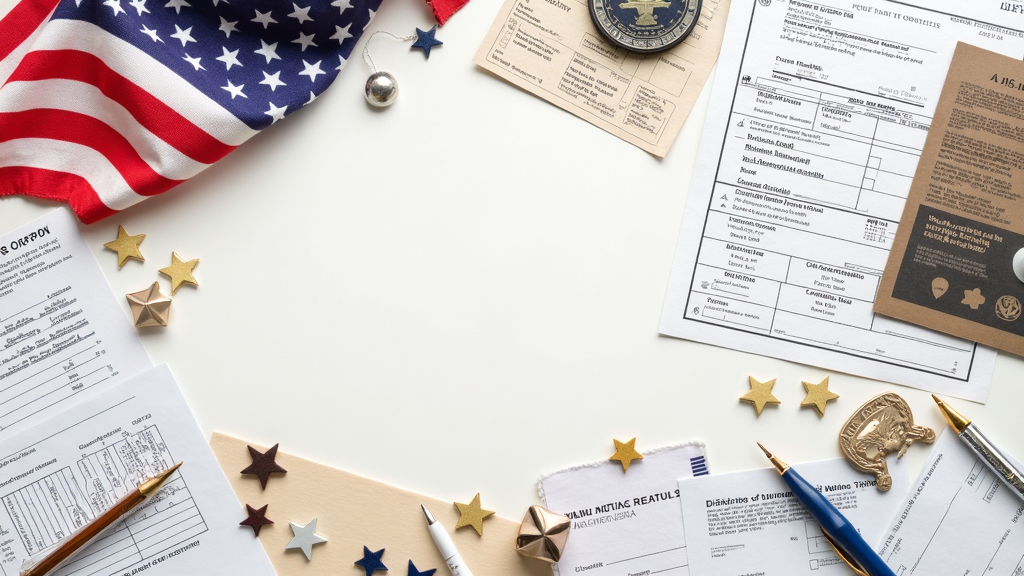Military life brings unique challenges and opportunities for families, especially when it comes to benefits for spouses and dependents. I know how important it is for families to access the support systems designed for them, whether it’s health care, education, housing, or special assistance. Filing for military spouse and dependent benefits may seem complex at first, but having a clear path can lower stress and help you get the help your family deserves. I’ll walk you through what you need to know about getting started, what to expect, and how to keep everything on track.

Understanding Military Spouse and Dependent Benefits
Military spouse and dependent benefits are there to support the stability and wellbeing of service members’ families. These programs include health care through TRICARE, education benefits, housing and relocation assistance, and more. Many of these are available to both active duty and retired personnel, but the specifics can vary based on service member status, years of service, and other factors.
For example, TRICARE ensures that military families have affordable access to doctors, hospitals, and pharmacies. The Post 9/11 GI Bill provides tuition help for spouses and children. Other benefits include base privileges (like using the commissary or exchange), life insurance, and survivor benefits. Knowing these main categories helps you plan for what fits your family’s needs.
Military spouse and dependent benefits are not automatic. You need to file paperwork to prove eligibility and to access many services. This may mean collecting personal documents, medical records, and proof of relationship. I’ve found that knowing what to have ready and what’s expected can speed up the process and keep surprises to a minimum.
How to Get Started: Filing for Benefits as a Military Spouse or Dependent
I always recommend starting with a check of the Defense Enrollment Eligibility Reporting System, or DEERS. This database contains all records related to service member dependents. Registration in DEERS is really important because it enables access to almost every other military benefit program. Usually, your local ID card office can help with adding spouses or dependents.
- Proof of Relationship: Bring original or certified copies of marriage and birth certificates when enrolling in DEERS.
- Social Security Numbers: Dependents need Social Security numbers for TRICARE and most government benefits.
- Service Member’s Orders: Having a copy of your spouse’s orders is helpful for confirming eligibility for some benefits.
After you’re registered in DEERS, it helps to make a list of all benefit programs you want to look into: health care, education, financial help, and so on. Many programs allow you to apply online, but some (like housing) may require in-person appointments. I suggest keeping a file—digital or paper—where you store all submitted forms, letters, and confirmation numbers. This helped me stay organized and gave me peace of mind when following up.
Key Programs and What They Offer
Here’s an overview of the most popular benefit programs for military spouses and dependents:
- TRICARE: Health insurance with options that suit different needs and locations. Options include TRICARE Prime and TRICARE Select.
- The Post 9/11 GI Bill: Sometimes called the “Forever GI Bill,” it provides tuition, housing, and book stipends for eligible spouses and dependents when transferred by the service member.
- Survivor Benefit Plan (SBP): Financial support for families if the service member dies during service or while receiving military retirement pay.
- Military Family Housing: Onbase or governmentfunded housing.
- Child and Youth Services: Access to child development centers, youth activities, and afterschool programs.
- Commissary and Exchange Privileges: Shopping at lower prices on base facilities.
- Spouse Employment Programs: Job assistance, resume help, and career workshops designed for military spouses.
Each of these programs has its own eligibility requirements and filing steps. I found it helpful to take care of one benefit at a time instead of trying to tackle everything at once.
Common Questions When Filing for Benefits
New families or those new to military life often have plenty of questions. Here are a few that came up most often for me and my friends:
Do I need to reapply if my spouse’s duty station or status changes?
Moves and promotions can affect benefit eligibility or the paperwork required. For example, moving to a new state might mean enrolling in a different TRICARE region. When your spouse changes from active duty to retired status, some benefits remain, but others (like housing) might not. It’s wise to check your DEERS info and confirm any changes with the proper offices.
How soon should I file?
Filing early leads to quicker access to care or financial help. As soon as your status changes, like after getting married or welcoming a baby, update paperwork and documents right away.
Is there help for handling the paperwork?
Most installations have Family Support Centers or Military & Family Readiness Centers. These offices have trained staff who can explain forms or answer questions about eligibility.
Tips for Smooth and Confident Filing
If some steps seem intimidating, you can make life easier by getting organized early. Some of my favorite tips include:
- Double check all names, dates, and Social Security numbers on your forms. Typos are a common source of delays.
- Set phone reminders to follow up on applications after a few weeks if you haven’t received confirmation.
- Take advantage of installation support staff; they deal with these processes daily and can give you solid advice for your location and branch.
- Download and save copies of every document you submit, including emails and mailed confirmations.
- Join social groups for military spouses. These communities often have current advice on what works at different bases and in different situations.
Building a small network, even online, gave me people to reach out to for practical tips and support. It really helps when you run into slowdowns or tricky questions.
Special Situations to Know About
Some family situations make filing a bit different. For instance, stepchildren or wards may require extra documentation to prove dependency, and children over age 21 might lose eligibility unless they’re disabled or enrolled fulltime in college (usually up to age 23). Divorced spouses usually lose benefits after a legal finalization of marriage, except in cases where special rules (such as the 20-2020 rule) apply for retirementrelated benefits.
If your spouse is in the National Guard or Reserves, your benefits can change depending on activation status. Some programs require regular updates or recertifications, especially for financial aid or specialized medical care.
Survivors of deceased service members have access to special benefits, but the claims process typically needs extra documents such as death certificates and, occasionally, legal notices. Military casualty assistance officers are available to guide survivors through these steps; their help can ease a very tough time.
Examples of Filing Scenarios
The process of filing and accessing benefits feels smoother when you know what to expect for your situation. Here are a few examples based on my own experience and those of others in the military community:
- PCS Move (Permanent Change of Station): Register at your new base, update DEERS, and notify TRICARE and school officials for dependents.
- Retirement Transition: Schedule a retirement briefing well in advance. This can help ensure you don’t lose coverage or miss deadlines for certain benefits.
- Deployments: Check the power of attorney status and family emergency contacts before your spouse leaves. This helps with accessing medical care and other crucial needs during absence.
I always suggest keeping a central file for significant life events. When I moved with my family for a PSC, having one dedicated folder saved hours of paperwork and confusion at the new duty station.
Frequently Asked Questions
Question: What do I do if my benefit application gets delayed?
Missing documents or typos are typical causes. Reach out to the office handling your application to check the status, and bring copies of all your paperwork when following up.
Question: Can I apply for education benefits as a spouse?
Yes, if your spouse transfers GI Bill benefits to you. The rules can get nuanced, so your base education office can explain the next steps.
Question: How can I keep up with changing regulations?
I stay connected with military spouse groups and check official Defense Department websites several times a year. Official newsletters often highlight important updates in advance.
Helpful Resources for Military Spouses and Dependents
Whenever you’re unsure or need stepbystep guidance, these resources have helped my family and countless others:
- TRICARE – Details, enrollment, and coverage information
- GI Bill Benefits for Dependents – Transfer rules and application steps
- Military OneSource – Counseling, tips, and phone support at any hour
- DEERS – How to enroll, update, or check your registration
Starting early, staying organized, and reaching out for help can make filing for benefits much clearer and more manageable for any military family. If you’re new to this, give yourself time, seek support, and remember that others have walked this path before. With every step, you’re strengthening support and security for your loved ones.
